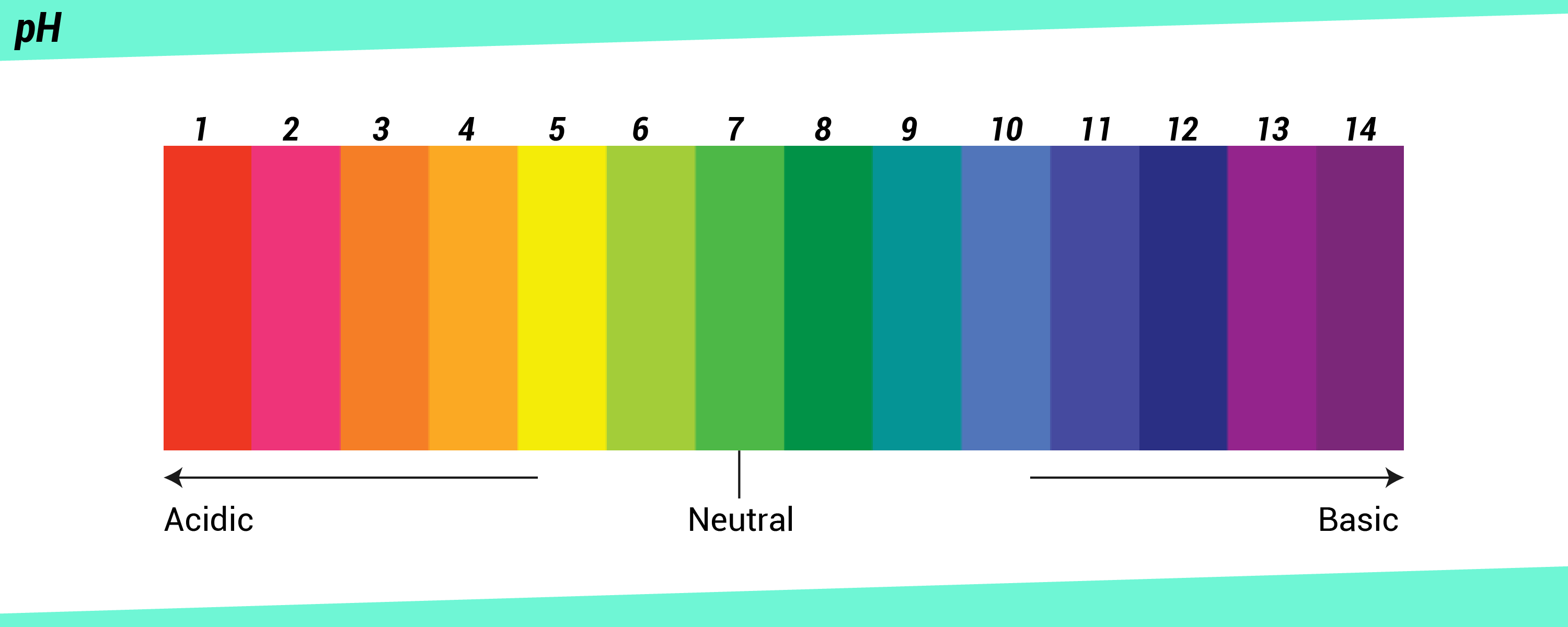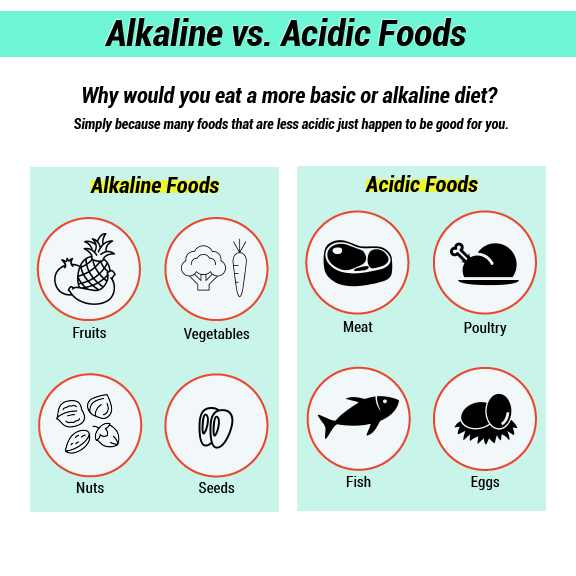Of all the ways you can easily become confused by what foods are “healthy,” the most common is the cruelest. The diet industry loves to take a concept that you understand on a basic level, and then twist science to make it seem that certain foods are dangerous to your health.
The manipulation of fear pushes you towards more restrictive diets, “requires” you to waste money on tests that only heighten your fear (unnecessary), and this forces behavioral changes that are unnatural to your preferences and, oftentimes, just lead to more frustration and failure.
This is exactly what has happened with the “alkaline diet,” or any dietary suggestions that make you worry about the alkalinity or acidity of a food.
Before you shift your diet based on the pH levels of foods or spend extra money to have a more alkaline-based diet (yeah, we’re looking at you alkaline water), let’s clear the air on what’s happening in your body and what really matters for your health.
Acid Diet vs. Alkaline Diet
In order for all of this to make sense, here’s a quick refresher that explains why people are even concerned with the acidity or alkalinity of the foods you eat.
Your body has a pH level that establishes whether something is acid, neutral, or basic (AKA more alkaline heavy). Your pH balance runs on a 14 point scale, with 0-6.9 being acidic, 7 is neutral, and anything above a “7” is basic.
When your body is balanced, it’s able to use vitamins and minerals more effectively. And, there’s a growing belief that cancers thrive in an acidic environment.
Therefore, there’s an assumption that following an alkaline diet will reduce the acidic environment of your body and keep you safe.

Is an Acidic Diet Dangerous?
Fortunately, for your sake and the health of your body, eating more acidic foods does not pose the threats you’ll see across the internet.
People who recommend eating a more “alkaline diet” will suggest that acidic foods change the pH of your blood and increase your risk for disease.
This is simply not true and here’s why: Your blood pH is tightly regulated so it stays between 7.35 and 7.45, which is slightly alkaline (1 is acidic, 7 is neutral, and 14 is alkaline).
No food can lower or raise blood pH. (Let that sink in as the first sign that any acid/alkaline diet suggestions are scare tactics based on bad science.)
To be clear: food cannot change the pH of your blood.
There are many systems in place to prevent that from happening. If the pH of your blood changes, that means you’re in critical health danger. So, the belief that eating an acidic diet will change blood in a way that causes a life-threatening disease (like cancer) isn’t real.
Now, some people will confuse you by having you test your urine when you eat certain foods. If you do this, it’s likely that you’ll see pH changes. But, looking at your urine as an indicator of acid levels in your body is very misleading.
That’s because your stomach is very acidic due to the fact that it helps break down food. So, if you eat acidic food, once it passes through your stomach, naturally, you will excrete acid. This does not mean that your body is in any sort of danger or out of balance.
Furthermore, a blood pH below 7.35 is known as metabolic acidosis, while alkalosis refers to a blood pH above 7.45. Either case is cause for serious concern and requires immediate medical attention. It’s not like you’d eat meat, change your pH level, and have issues without knowing.
If the pH level of your blood changes, you will know and you’ll likely feel very sick.
That’s not to say that eating some acidic foods won’t have consequences, but it’s a bait-and-switch rationale. Added sugars and refined starches are problematic not because they are “acid-forming,” but because they are minimally nutritious, raise biomarkers for heart disease, and can wreak havoc on our blood sugar levels.
Is an Alkaline Diet Better?
While there’s no need to test or worry about the acidity or alkalinity of your urine, there are other reasons to eat a more alkaline diet — and all of those reasons have nothing to do with testing pH levels.
Many of the world’s healthiest foods just happen to be alkaline.
Alkaline foods include fruits, vegetables, nuts, seeds, and legumes. Eating those foods is a good idea, in general, but that doesn’t mean you need to stay away from acidic foods (like meat and eggs), and there’s no evidence that the acidity of your diet will bring on disease.

And don’t just take our word for it. According to resources from the American Institute for Cancer Research: “Altering the cell environment of the human body to create a less-acidic, less-cancer-friendly environment is virtually impossible.”
If you’re thinking about buying alkaline water, please save your money. You can read all about why in this article from The New York Times.
But, if you want to eat more alkaline foods, do so without worrying about the pH and simply because they are good options that fit into your dietary preferences.
Have questions? Share them in the comments below.
And if you’re sick and tired of the diet industry misleading you, the hands-on support of our online coaching program may be right for you. Every client is assigned two coaches — one for nutrition and one for fitness. Find out more here.

Adam Bornstein is a New York Times bestselling author and the author of You Can’t Screw This Up. He is the founder of Born Fitness, and the co-founder of Arnold’s Pump Club (with Arnold Schwarzenegger) and Pen Name Consulting. An award-winning writer and editor, Bornstein was previously the Chief Nutrition Officer for Ladder, the Fitness and Nutrition editor for Men’s Health, Editorial Director at LIVESTRONG.com, and a columnist for SHAPE, Men’s Fitness, and Muscle & Fitness. He’s also a nutrition and fitness advisor for LeBron James, Cindy Crawford, Lindsey Vonn, and Arnold Schwarzenegger. According to The Huffington Post, Bornstein is “one of the most inspiring sources in all of health and fitness.” His work has been featured in dozens of publications, including The New York Times, Fast Company, ESPN, and GQ, and he’s appeared on Good Morning America, The Today Show, and E! News.
Finally! Someone who understands and writes about food and pH properly! As a biochemistry teacher I get questions regarding food and pH in the body every year. From now on I think I will just refer my students to this article. Thank you!
Thanks for reading Alex.